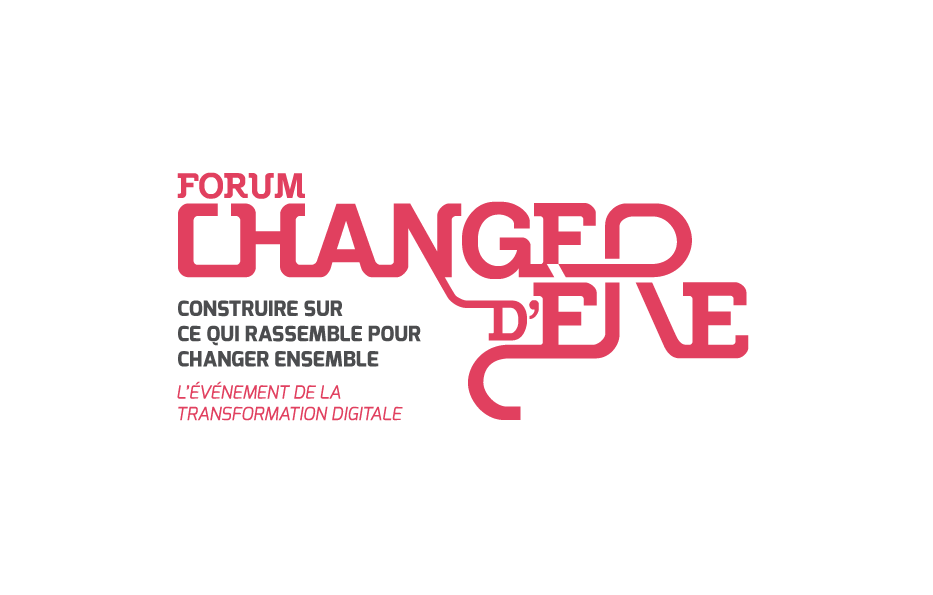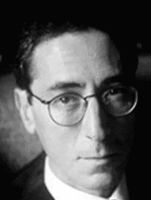Between East and West (British though his father, Lebanese through his mother, and Parisian by culture), Percy Kemp* feels equally at home in Paris, London and Beirut. Véronique Anger : Controlling information is a decisive element of corporate competitiveness. What is your company’s role in this information world war? Who are your customers? VA : For companies, understanding the socio-political environment is essential to be able to act and win new markets. Your company works mainly on the Arab and Muslim world (1); what was the main impacts of 9/11 on your profession? VA : Is there still paranoia over commercial and industrial espionage? VA : What is, according to you, the difference between « espionage » and « economic intelligence », in the broad sense, inherited from military strategy? VA : We are living in times when economies, know-how and means are interconnected. In the field of information and forecast, analysts have shown their limits (on the economic plane: stock market crisis; on the geostrategic plane: Western Africa, 9/11 …). VA : Historic choices are often judged severely decades later. I’m thinking, for example, about the various possible ways in 1940: de Gaulle or Pétain? Chamberlain or Churchill? According to you, are there currently strategic selections of politicians who come into this category? Do you think that history always gives reason to conquerors? *Percy Kemp set up tactical Studies back in 1986. He has published three novels (« Musc », « Moore le Maure », and « Le Système Boone » , all at Albin Michel, Paris), two academic works (« Territoires d’Islam » and « Majnûn et Laylâ » at Sindbad-Actes Sud), and circa fifty articles on a number of subjects ranging from Islam to espionage, the most recent being « La nouvelle Rome et ses Carthage » (in Esprit, August/September 2002) and « La loi du talion » (in Le Nouvel Observateur, October 24th, 2002). For further information on Tactical Studies: http://www.tacticalstudies.com (1) Iran, the Maghreb, Pakistan, the Gulf States, the Near East…
A consultant at Tactical Studies, a company specializing in strategic intelligence, he is also the author of the best seller « Le système Boone », a spy thriller which takes place in the Lebanon against a background of global geopolitical stakes.
Percy Kemp : Our customers mostly aim at public sector projects: oil and gas companies, public utilities, defence contractors, etc.
Tactical Studies aims mainly at assisting companies in formulating precise and accurate questions, prior to providing them with pertinent answers to the said questions.
In the context of the « information war », the main thing is not access to the substantial data available in the press, on the web and in open sources in general. The main thing, to my mind, is to formulate accurate questions likely to generate relevant answers. There lies the difference between information (which is overabundant and plethoric) and intelligence (which is targeted.
Nowadays, we are over informed and swamped in a mass of information. This problem is particularly difficult to deal with in view of the widespread use of data-oriented communication and data encryption systems.
In the past, information was quite difficult to convey in a secure manner. Encoding messages was a tedious process that required many working hours. More recently, however, information has been very easy to spread very widely, almost in real time, and in almost total security from prying ears and eyes. A few seconds are now sufficient to encode data. This ease has had perverse effects.
Experts who produce and pass on information sometimes give in to this ease, and rather than limit themselves to essential information, send on everything and anything.
For our part, we strive constantly to identify our customers’ needs, so as to supply them with targeted intelligence and suitable answers to their questions.
We don’t carry out many quantitative, economic or statistical surveys. Rather, we tend to focus on the psychology, motivations and intentions of decision-makers. Our job consists in identifying « real » decision-makers on a given market and in a given negotiation: Who takes the final decision? Is it the Defence Minister, the Energy Minister, or Finance Minister? What drives him (her): technical, cultural, financial, political, or personal factors? Is the decision-making process divided? Etc. Understanding the different parties’ psychology and real motives often enables us to de-mystify a situation and in avoiding an unnecessary dramatization of an ongoing negotiations.
PK : One of the consequences is that companies are now more and more preoccupied with the safety of their expats and installations than they are in fending off their competitors.
Since 9/11, our customers have been more worried about political stability and physical risks than about commercial warfare. .
In many large companies, security, safety HR and logistics personnel has become more important than sales and marketing executives.
This logic, which is more defensive than offensive, minimizes the traditional commercial rivalry between competing firms and puts the emphasis on sheer survival in a given risk country.
As a result, our job is today a bit less interesting and less stimulating in as far as it requires more pragmatism and less creativeness. To make a comparison with soccer, one might say that goal keepers and full backs currently play a major role than strikers. As a result, games are becoming less interesting.
PK : Until the collapse of the Soviet Union and until recent privatizations in Europe, the scare over industrial and commercial espionage mainly resulted from the system of protected markets (for instance, France in Africa, the Soviet Union in Eastern Europe) and from the sheer weight of public sector companies which identified company interests with State interests (take Elf for instance).
However, since the end of Cold War, and especially since the big wave of privatizations in Europe, large national companies have become more and more multinational and, as a result, the old paranoia is receding because the ideological and political dimension of warfare is also receding. Economic warfare no longer pits political enemies but commercial competitors. The notion of « competitor » notion, contrary to that of « enemy », cannot justify launching a « just war » or a « holy war ».
PK : The main difference between what we call « economic intelligence » and what we call « espionage » lies in the modus operandi. Are we acting openly or not? Is the method being used legal?
The difference between the two is above all juridical. Espionage consists in using illegal means to achieve one’s ends, such as bribing the staff of a rival company or tapping competitors’ phones.
Illegal operations may have disastrous consequences for their principals, if they are found out, contrary to what was the case ten years ago when industrial and commercial espionage could always be politically or ideologically motivated, and therefore easier to justify and to live with.
How do you analyze these changes and their impact on your profession?
PK : Analysts tend to believe that major economic and political players always act rationally and in their best interests. I think this is not always the case.
I believe that purely quantitative and rational analysis is not enough to understand and explain what is going on in the world, simply because economic flows are generated by human beings. Some decisions are taken in total subjectivity, and even irrationally, sometimes without taking into into account immediate financial interests.
Take oil for instance. Shipping Caspian Sea oil through Iran (thanks to a very advantageous swap system) would cost fifty cents per barrel, while shipping it via Turkey through the Baku-Ceyhan pipeline would cost three dollars, i.e. six times more…
The first solution is clearly more interesting from a financial view point. This said, the US Administration nonetheless insists on cutting out Iran in favour of the Baku/Ceyhan solution. The reasons, are mainly emotional, political and ideological. They are not economic.
Another example: Analysts tend to underestimate the personal motives which influenced Usama Bin Laden’ s decision to attack the US: Bin laden, who had earlier been used by the Americans in their war against the Soviets in Central Asia, and who was later ditched by the same Americans when they no longer needed him, felt totally betrayed.
Analysts are often unable to anticipate decisions of this type, because they fail to take into account human nature and psychological factors. Analysts are, as a rule, cold and rational beings, and they tend to project this onto the world they are analyzing.
At Tactical Studies, we carry out few quantitative studies. On the other hand, we try to understand what is likely to influence economic and political decision-makers, and we strive to go beyond what a decision-maker is able to do (i.e. his(her) potential) in order to grasp what he(she) wants to do (i.e. his(her) intentions).
PK : This question of choice is very interesting. Retrospectively, Chamberlain(3) indeed made the wrong choice, while Churchill(4) made the good choice very early in 30s by fiercely opposing any concession to Germany and by advocating British rearmament.
Yet t we tend to forget that Churchill opposed the Government on Germany while he was out in the wilderness. History proved him right, but his motives were purely personal and tactical. I doubt whether he had a strategic vision. It was merely that opposing the Government on Germany was vital for his political existence.
Today, we are confronted with similar and difficult choices. And these choices are all the harder to make because of the psychological profile of the majority of political and economic leaders.
In the past half century, two clear trends have appeared in world political and economic affairs.
The first trend is characterized by the rise of the « managers ». The last fifty years have allowed the rise to top political and economic positions of individuals who do not necessarily have the profile or psychology of true decision-makers. Individuals who are risk averse rather than risk takers. This obviously makes it harder to make difficult decisions, the more so since any decision necessarily entails a risk.
The second trend is multilateral diplomacy. The balance of power established during the Cold War(5) re-introduced multilateralism in international relations, and every problem then found its solution within the UNO, in multilateral dialogues based on the equilibrium between the two blocs. Each new to what extent it was possible to go, and beyond which point it could not go (the Russians could grab Hungary even though the Communist Party there was weak, but not Greece or Italy, although both these countries had powerful Communist parties). There was a general consensus, managed by jurists and legal experts relying on logical arguments.
Gradually, however, some countries forsook this consensus. Hence Israel, which considered that its right to defend itself prevailed over international law. In the name of self-defence, Israel never hesitates to violate UN Security Council resolutions.
Later on, the Moslems in turn began to forsake this international consensus in the name of a divine justice deemed superior to the international law.
And we all know what the impact of this has been on world stability.
The state of flux in which we live since the end on the Cold War requires true decision-makers, risk takers capable of making harsh decisions. In this sense, a figure such as Ariel Sharon is to my mind better equipped to deal with this state of flux, than, say, Ehud Barak, in the same way as Usama Bin Laden is better equipped than most Arab rulers.
I’m passing no value judgment. I am not saying these decision-makers are right or wrong, I’m merely stating a fact.
When, after 9/11, the United States decided to attack Al-Qaida and the Taliban regime in Afghanistan, notwithstanding the lack of tangible proof against them, the US’s European allies, still under the shock, willingly followed them. Later on, however, when the United States asked for the support of their allies against Iraq, still without any formal proof on the existence of Iraqi WMDs or on the links between Baghdad and Islamist terrorists groups, the Europeans (and particularly the Germans and the French) having gotten over the shock of 9/11, started being coy, and insisted on given preference to the old logic of multilateral negotiations and legal arguments.
I can’t help feeling that our perception, as inherited from the 20th Century, of what is fair and what is not, of what is right and what is not, of what is acceptable and what is not, no longer suits the new world of the 21st Century. The world we live in has changed, but we are not as yet ready to change with it. The present European outcry against G.W. Bush, the liberal outcry against Ariel Sharon, the Western outcry against Usama Bin Laden, and even the outcry of French civil society against Interior Minister Nicolas Sarkozy, suggest that we are still refusing the change. We still refuse to be ordered about by 21st Century magician-kings and to put our faith in them. We much prefer the more reassuring figure of the 20th Century jurist-priests who seek to convince us by using logical and rational arguments.
There remains to be seen, however, whether the 20th Century jurist-priests can cope with the uncertainties of the 21st century.
(2) On that subject, cf. the following articles: « Les grandes manœuvres autour de la Caspienne » (Le Monde, 05/25/02) and « Pétrole : l’Occident dans le champ de Moscou« (Libération, November, 2002)
(3) The First British minister (1937-1940) who tried vainly to meet peacefully German demands (Munich agreements of 1938). He eventually was constraint to declare war on Germany in 1939.
(4) British Prime Minister (1940-1945 and 1951-1955), leader of the Conservative Party and one of the protagonists of the Allies’ victory.
(5) Between 1945 and 1990.
Our Vision of what is right or wrong no longer suits to the 21st century world
Comments 0
- Les Di@logues Strategiques on 2 mai 2010 inLes Di@logues Strategiques
Non classé



